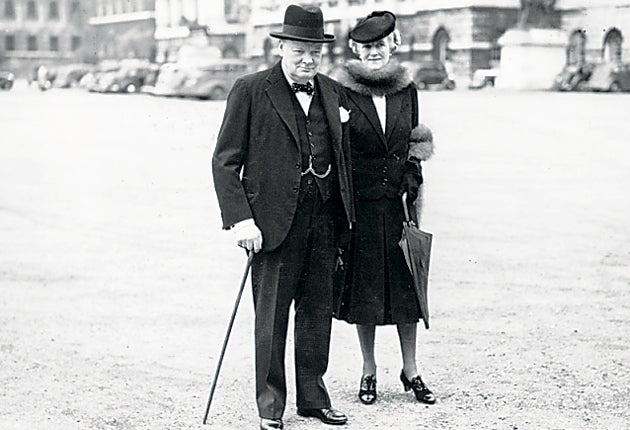Keeping Churchill on the straight and narrow

On the face of it, it may not be the sort of message you would want to receive from your nearest and dearest as you approach one of the most exacting periods of your life.
"I have noticed a deterioration in your manner and you are not as kind as you used to be," the letter said.
It was received by Winston Churchill from his wife Clementine just two weeks after he had made his "finest hour" speech as the country prepared to cope with the Battle of Britain during the Second World War.
The note is just one of the items unveiled today by Cambridge University's Churchill Archives Centre to celebrate the 70th anniversary of the wartime leader's famous speech.
The freshly examined material sheds light on how he crafted his speech, aimed at rallying Britain during its darkest hour after the fall of France – and also reveal the intense emotional pressures he was under at the time.
In the letter, Clementine Churchill begins: "My darling, I hope you will forgive me if I tell you something I feel you ought to know.
"One of the men in your entourage, a devoted friend, has been to me and told me there is a danger of your being generally disliked by your colleagues and subordinates because of your rough, sarcastic and overbearing manner."
She adds: "My darling Winston, I must confess that I have noticed a deterioration in your manner and you are not as kind as you used to be."
She urges him to adopt a stance of "Olympian calm", finishing by saying: "You will not get the best results by irascibility and rudeness, they will breed either dislike or a slave mentality."
The original copy of Churchill's speech reveals that his oratory was meticulously planned, with markings on the script in blue and red ink denoting that he was making changes right up to its delivery in the House of Commons and its broadcast to the people.
In one example, a first draft which read "The battle of France is over. The Battle of Britain is about to begin" had the words "all shall be restored" inserted between the two sentences.
Join our commenting forum
Join thought-provoking conversations, follow other Independent readers and see their replies
Comments